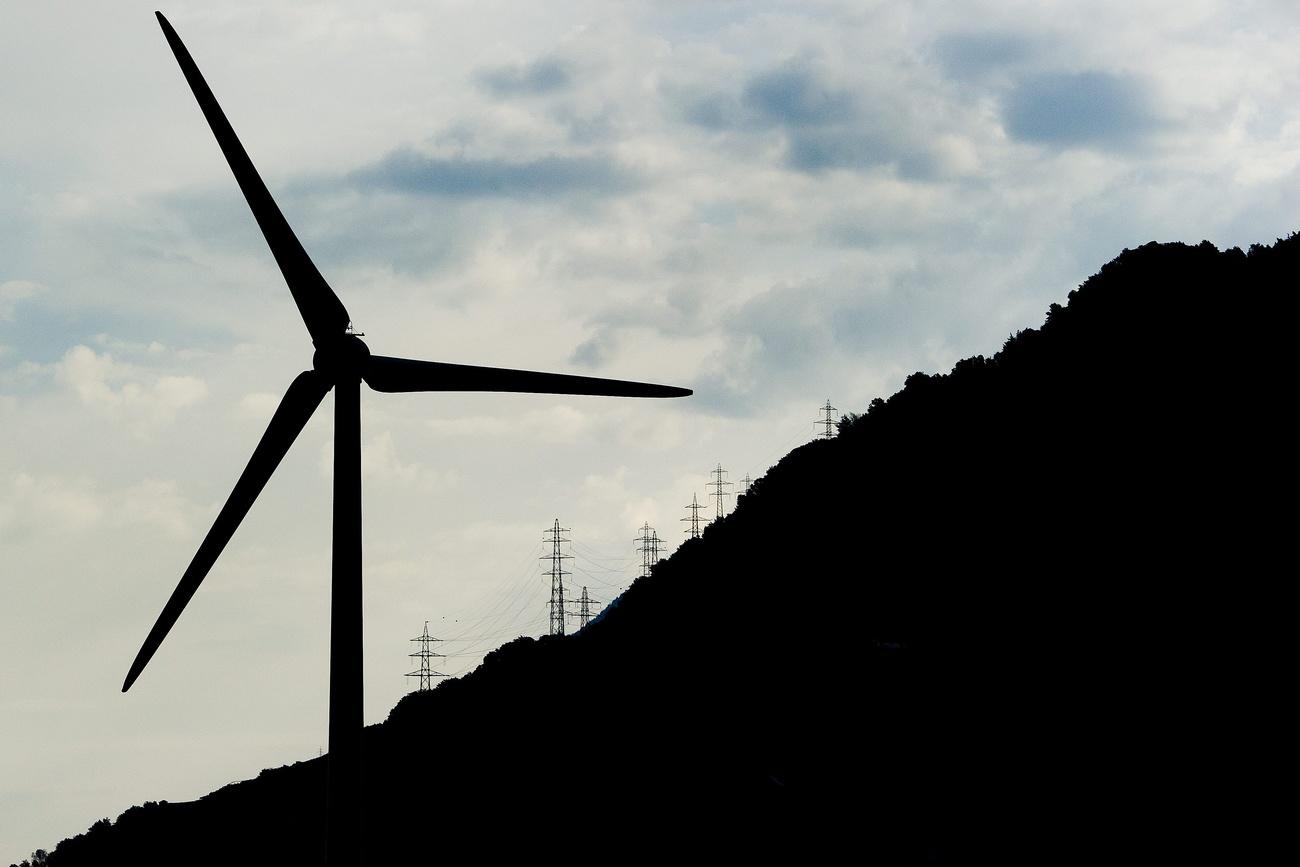
Ranking finds Switzerland lagging on wind power

In a comparison of European solar and wind power generation, Switzerland ranks near the bottom.
Per year and inhabitant, Switzerland produces 250 kilowatt hours of solar (236kWh) and wind (14kWh) power – the amount needed to power a dishwasher, roughly. This puts Switzerland in 25th place when compared with the 28 European Union nations, according to a study published by the Swiss Energy Foundation (SES)External link on Wednesday.
Leader Denmark produced ten times as much solar and wind power as Switzerland in 2018, but its 2,568kWh per person included just 165kWh of solar, considerably less than Switzerland. Germany placed second, with 558kWh of solar and 1,348kWh of wind power per person.
Only Hungary, Slovenia, Slovakia and Latvia placed below Switzerland in the overall ranking. This is “alarming” for a country that “likes to boast about its progressive electricity policy and generation,” stated SES project manager Tonja Iten.
The Swiss Federal Office of EnergyExternal link recently estimated that 67 terawatt hours of electricity could be generated annually in Switzerland on house roofs and facades alone. This would clearly exceed the country’s current electricity consumption of 58 TWh per year.
The Swiss consume around 7,000 kWh of electricity per capita and year. The main source of energy in Switzerland is hydropower, which covers 60% of the grid. In 2017, the Swiss voted to gradually phase out nuclear power and to ban the construction of new nuclear power plants. About 32% of Switzerland’s electricity productionExternal link is nuclear.
Wind and solar power together account for just 3.7%. The share of solar energy rose by 18% last year, bringing its market share to 3.5%. Wind power, however, is stagnating, and no new turbines were erected last year.

More
Swiss electricity getting greener

In compliance with the JTI standards
More: SWI swissinfo.ch certified by the Journalism Trust Initiative




























You can find an overview of ongoing debates with our journalists here . Please join us!
If you want to start a conversation about a topic raised in this article or want to report factual errors, email us at english@swissinfo.ch.